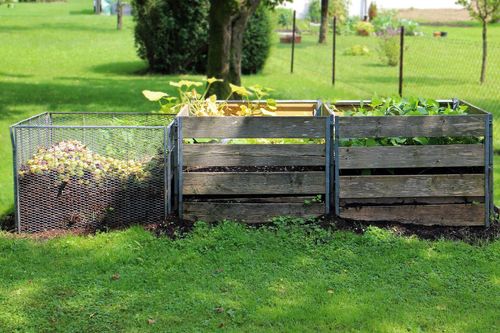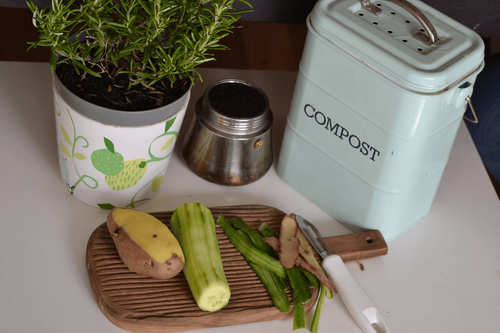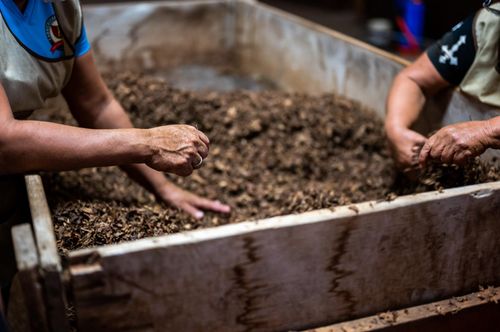Small Space, Big Impact: How to Compost in Your Apartment
7 minute read
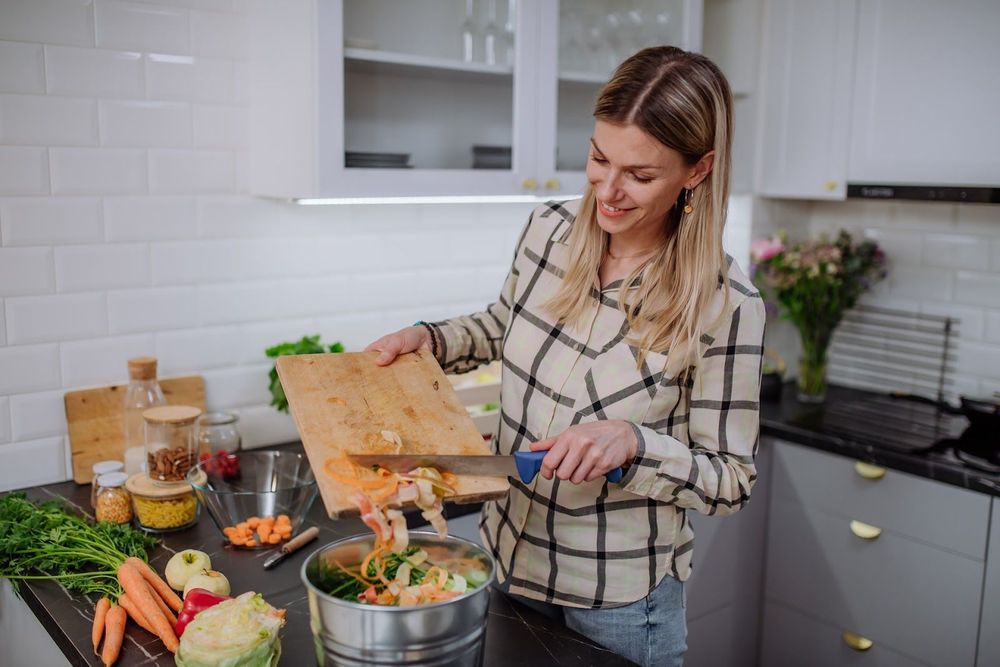
Composting isn't just for sprawling backyards and expansive gardens—it's entirely possible and just as impactful in the cozy confines of an apartment.
We know - that sounds crazy, right?
Well, not so much, actually.
More and more people are starting to see the benefits and are actively moving towards living a composting lifestyle, even when they're living in what many people would call a "small space."
Ready to get involved yourself but think your apartment is too tiny for composting?
Think again.
In this guide, we'll show you how to compost effectively in your apartment, making a big environmental impact from a small space.
Let's turn those food scraps into black gold!
Why Compost in an Apartment?
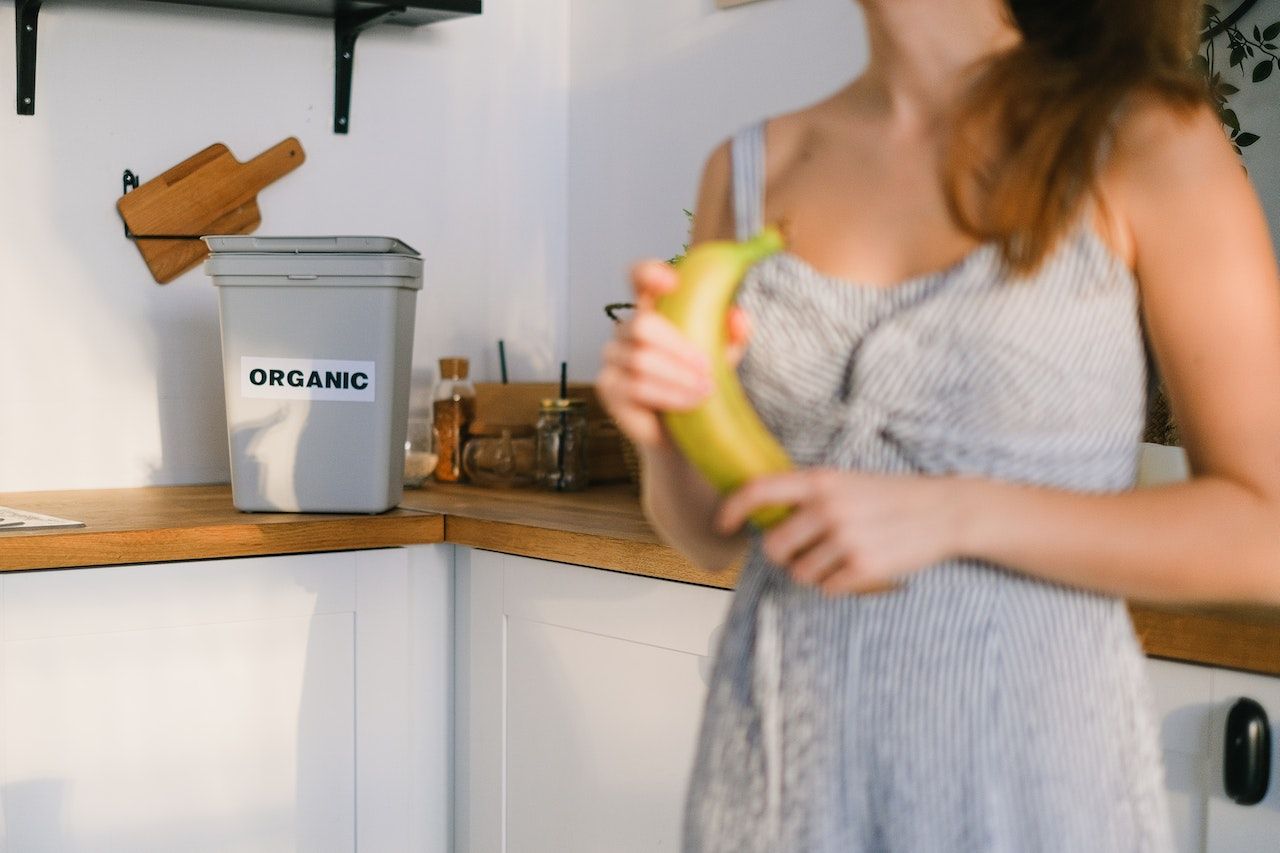
Composting in an apartment might seem like a small step, but it carries considerable weight in the larger environmental picture. Both in terms of how much waste you're putting out into the world and how you manage the quality of your home environment.
First and foremost, actively composting significantly reduces the amount of waste you contribute to landfills. These waste accumulations are not just eyesores; they produce harmful greenhouse gasses like methane, contributing to climate change.
It also just sucks.
About 65% of all materials discarded by homes and businesses end up in landfills, which equates to about 146.1 million tons of stuff a year. Just going to rot in the ground.
The trick to change is for everyone to take ownership of their waste and to be active in doing better. If these numbers and your own contribution make you feel uncomfortable, then it's time to take matters into your own hands.
Therefore, by composting, you're not just reducing waste; you're also combating global warming right from your apartment.
Furthermore, the compost you produce acts as a rich, organic fertilizer, perfect for indoor plants or shared community gardens.
It's a closed-loop system, taking waste from your kitchen and turning it back into valuable resources. This is great for you, your family, your house plants, and your immediate community, and that's so many wins you won't want to ignore them anymore.
So, as you can see, composting in an apartment is a practical measure with extensive environmental benefits that far exceed the confines of your living space.
It's a small move with a big impact.
Understanding the Basics of Composting
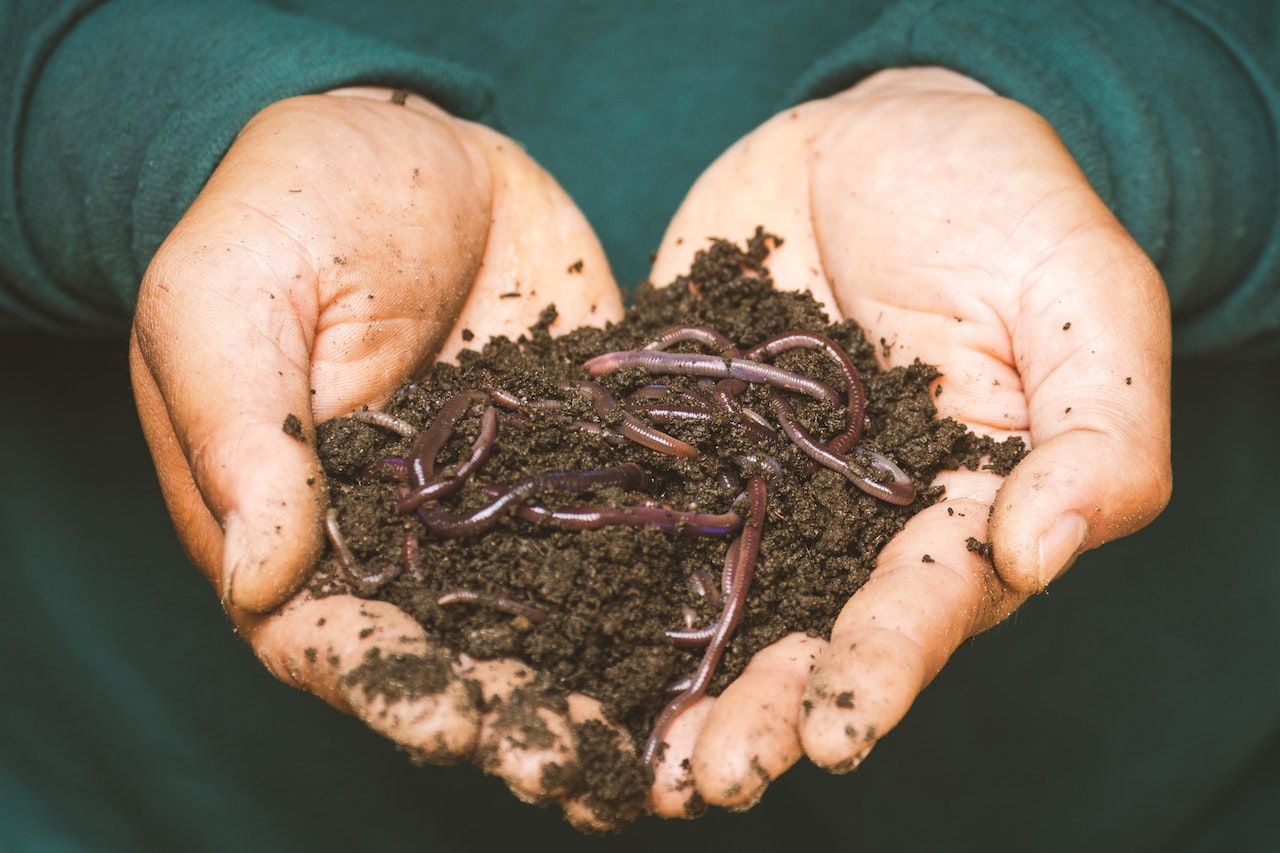
Let's take a trip into the science of composting, not only because it will help you make the most of your own composting experiences (and get the best results) but because you've probably not done any science for some time and these natural processes are interesting as heck to learn about.
From the beginning, the process of composting is a natural, biological process that transforms organic waste into a nutrient-rich soil conditioner.
It may seem complex, but the basics are surprisingly simple!
The Art & Science of Composting
Composting primarily involves two types of materials: green and brown.
Green materials are high in nitrogen and include items like vegetable scraps, coffee grounds, and fresh grass clippings.
Brown materials, on the other hand, are high in carbon and encompass items such as dried leaves, twigs, and paper.
A healthy compost pile should have a balance of both green and brown materials, essentially giving you the best of all nature has to offer in your new compost.
This is done by using a mixture of heat and the microorganisms (bacteria, fungi, and worms) that live within the natural waste you're throwing away.
They break down the organic material into simpler substances, creating a rich, dark, crumbly substance known as compost.
This process can take anywhere from a couple of months to a year, depending on the materials used and the compost pile conditions.
This 'black gold' is a fantastic, environmentally-friendly fertilizer for plants, contributing to the health and growth of your indoor or community garden.
However, not all kitchen waste should be composted.
Items like meat, dairy, and diseased plants can attract pests or create unpleasant odors and should be avoided, especially since you're composting in a small space.
On the other hand, fruit and vegetable peels.), coffee grounds, eggshells, and yard waste are great for composting, and you should absolutely make the most of these in your home!
So, with a little patience and practice, you can turn your everyday waste into a valuable resource right in your small apartment!
Equipment Needed for Composting in an Apartment
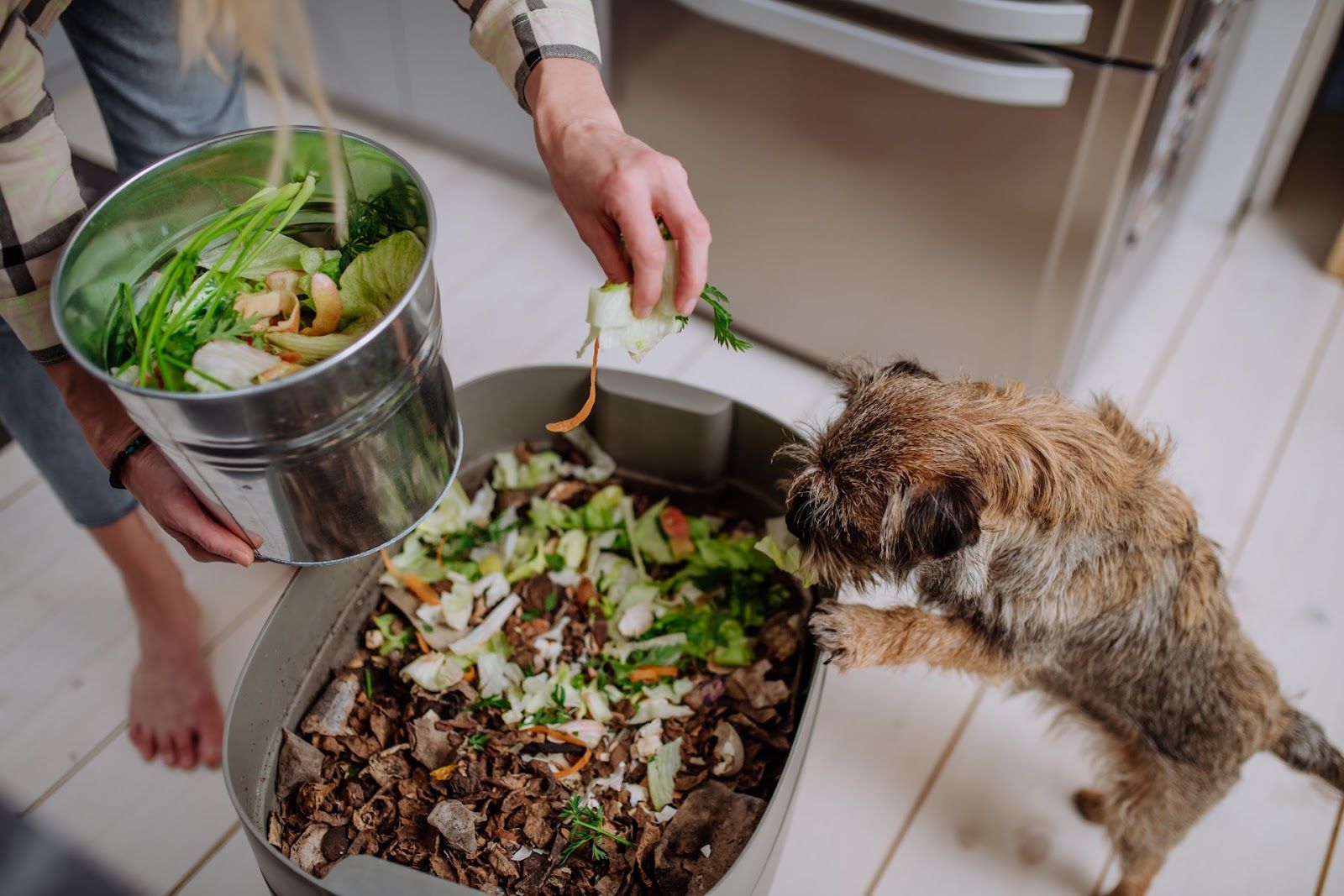
For apartment composting, the tools required are relatively simple and compact, especially since you won't have a lot of space.
At its most basic, you'll need a compost bin or bucket.
This container should be tightly sealed to avoid any unpleasant smells and, ideally, should have some form of ventilation to aid decomposition. This could be as simple as being next to a window or balcony or using a special ventilation box or tank with a built-in filter - the ones specifically designed for indoor use.
Thanks to modern technology, there are a ton of options out there with various sizes available, so it should be easy to select one that suits the space available in your apartment.
Oh, and in addition to your bin, you'll need a smaller kitchen caddy to collect your daily scraps before transferring them to the compost bin. We recommend keeping yours under the kitchen sink, where it's nice and easy to clear plates when you're tidying away after meals.
Finally, if you want the best results, a compost thermometer, and a compost turner or aerator can be beneficial, but they're not essential.
With these tools at your disposal, you'll be well-prepared to start composting in your small space.
Step-by-Step Guide on How to Compost in an Apartment
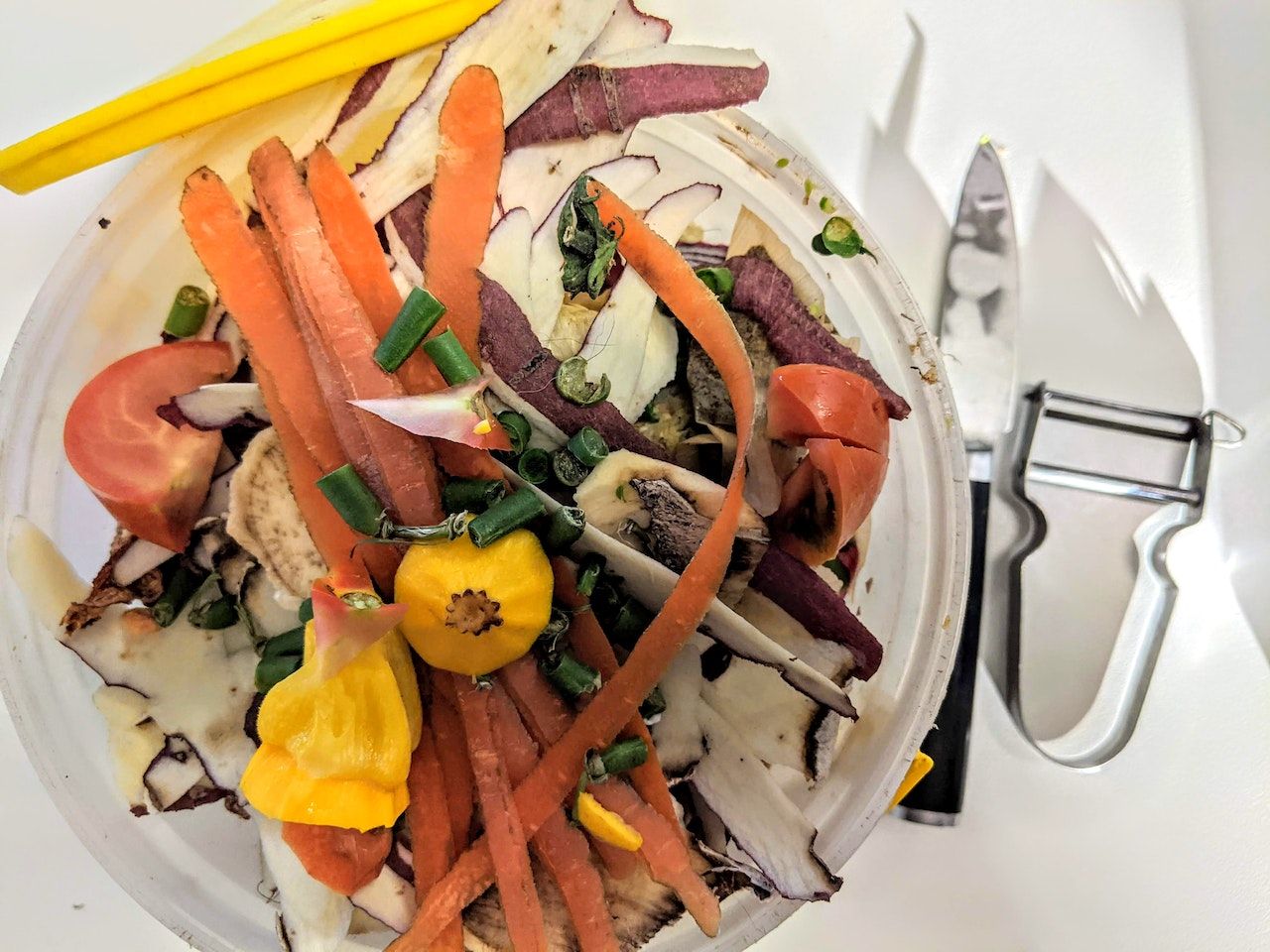
With your equipment set up and ready to rumble, it's time to get your hands dirty. While you're free to experiment with how you compost and figure out what works for you (and believe us, that's all part of the fun), this step-by-step guide should help set you in the right direction.
- Choose the Right Spot: Find a suitable location for your compost bin in your apartment. It could be under the kitchen sink, in a cupboard, or on the balcony. The area should be easily accessible as you must regularly add waste.
- Prepare Your Compost Bin: Layer the bottom of your bin with a few inches of soil to kickstart the composting process.
- Add Your Scraps: Begin adding your everyday organic waste. This can include fruit and vegetable peels, coffee grounds, and tea bags. Avoid meat, dairy products, and oily foods, as they can produce a foul smell and attract pests.
- Balance Green and Brown Materials: For effective composting, you need a mix of 'green' materials (e.g., vegetable scraps, coffee grounds) that provide nitrogen and 'brown' materials (e.g., paper, dry leaves) that provide carbon. Strive for a ratio of one part green to two parts brown.
- Turn Your Compost: Every few days, give your compost a good stir using a compost turner or a simple garden trowel. This helps to aerate the pile and speed up the decomposition process.
- Monitor the Compost: Keep an eye on the compost's moisture level. It should be damp but not soaked. If it's too dry, add some water. If it's too wet, add more brown materials.
- Harvest Your Compost: Over time, you'll notice the waste turning into a rich, dark, soil-like substance - that's your compost! It's ready when you can't identify any of the original materials. Transfer the compost to your plants or store it in a separate container until you can use it.
- Maintain the Cycle: Keep adding waste, turning the compost, and balancing materials.
By following these steps, you'll be on your way to successful small-space composting, turning your kitchen waste into a nutrient-rich supplement for your plants.
Common Challenges and Solutions in Small Space Composting
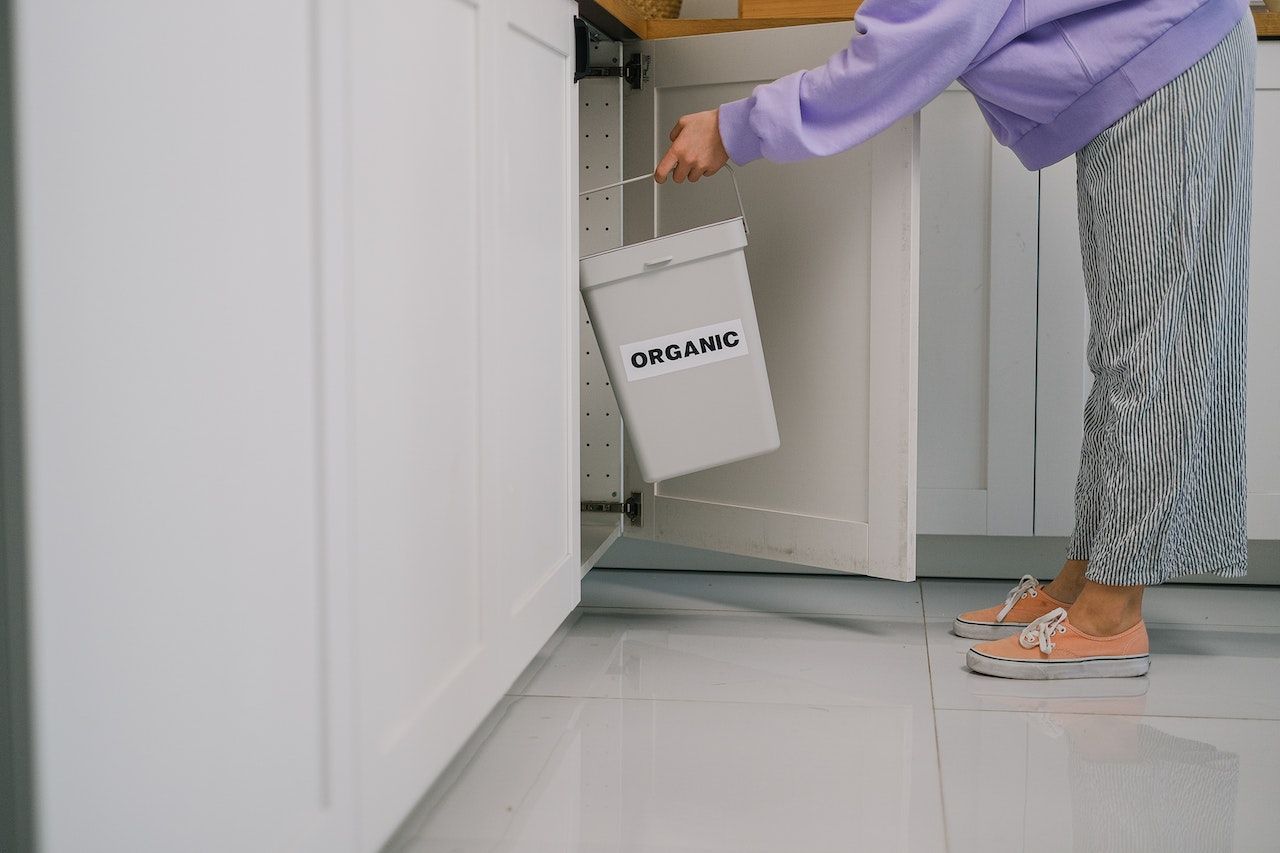
Okay, and with all this combined, you should feel pretty safe knowing that you have everything you need to know when it comes to starting the composting process in your apartment.
And yes, it's really that simple. It's just like outside composting but on a smaller scale. But that doesn't mean that it doesn't come without its fair share of issues. Let's take a look at some you may come across during your composting adventures.
- Odor is indeed a potential issue. If your compost bin begins to smell, add more brown materials to counterbalance the nitrogen-rich green waste.
- Another common concern is the lack of outdoor space for a compost pile. For this, consider indoor alternatives like a worm bin or a Bokashi system, which are suited for apartment living.
- Lastly, fruit flies may become attracted to your compost. To prevent this, ensure your compost bin is well-sealed and maintain an ideal green-to-brown ratio.
Conclusion: The Impact of Your Effort
Your effort in composting, no matter how small, has a powerful impact on the environment, and composting is a fantastic yet easy way to take control of your own sustainability.
So, every time you drop a banana peel or coffee grounds into your compost bin, remember – you're making a difference. Your commitment to small-space composting is a meaningful step towards sustainable living.
Have fun composting, and don't forget to share your experiences with us! If you're looking for any more help or guidance, then also check out the rest of our articles!
See you there!
